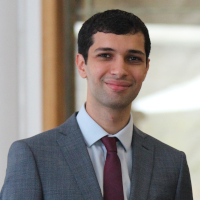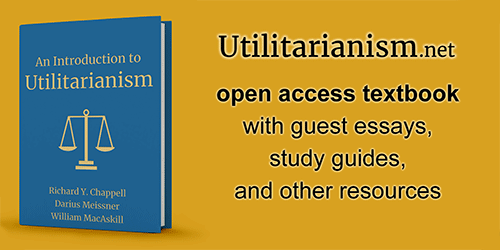History and Philosophy of Science Essay Prize Winner Announced by IUHPST
Ahmad Elabbar, a PhD student at Cambridge University, is the winner of the 2023 History and Philosophy of Science Essay Prize from the International Union of History and Philosophy of Science and Technology (IUHPST).

The biennial prize “seeks to encourage fresh methodological thinking on the history and philosophy of science and related areas.”
Mr. Elabbar won the prize for his essay “The curatorial view of assessment and the ethics of scientific advice: Beyond decisional autonomy towards distributive epistemic justice“.
The judges write,
Elabbar’s thoughtful, well-argued, and evocative essay tackles the question of how values do and should inform the presentation of policy-relevant scientific data and judgments, using the production of IPCC reports as a case study. It introduces an insightful analogy between museum curation and the sort of information curation practices that occur in the production of these reports. Elabbar describes how the selection, ordering, emphasis, and contextualisation of scientific data targeted at policy audiences is inherently value-laden, with the epistemic risks associated with each stage of the process illustrated through a comparison with the decisions that guide the display of museum objects.
Elabbar argues that strategies for negotiating values in policy-relevant science explored in the literature all share a commitment to preserving the ‘decisional autonomy’ of policymakers—their ability to apply their own values to policy decisions informed by science—yet they fail to preserve such autonomy. He proposes that we instead understand scientific assessments of policies and their ethics from the perspective of distributive epistemic justice. Scientists curating large quantities of policy-relevant data should aim to mitigate against asymmetries among stakeholders in access and ability to manipulate expert knowledge.
Elabbar’s essay provides an interesting and novel approach to the issue of values in science by extensively analyzing scientific literature together with work in sociology and museum studies. We commend him for the depth of research and rigorous argumentative approach that this essay achieves.
The prize includes $1,000 and the invitation to present the paper at the upcoming meeting of the International Congress on Logic, Methodology and Philosophy of Science and Technology, taking place this July in Buenos Aires.
The runner-up for the prize is Karoliina Pulkkinen, a postdoctoral researcher at the University of Helsinki for her essay “Beyond democratic legitimacy of value-judgments in science: a closer look at science in the early Soviet Union“. The judges write,
Pulkkinen’s ambitious and novel essay asks how HPS scholars and scientists should seek to legitimate the role of values in science, given the impossibility (and perhaps undesirability) of eliminating them. Pulkkinen points to a family of responses to this question that grounds legitimating mechanisms in democratic values and processes and asks what resources we might develop for asking similar questions about the legitimate influence of values in non-democratic contexts. The paper draws upon a historical case study that tracks the shift from a cultural emphasis on pure science in Tsarist Russia to a state-cultivated emphasis on applied science in the early Soviet Union. Pulkkinen notes a historiographical tendency to conceive of this shift as a top-down, and therefore likely illegitimate, imposition of ideological values on science by the Soviet state. This essay aims to complicate that story, showing how the evolving position of applied science in the early Soviet Union owed at least as much to the agency and values of individual scientists as it did to the heavy hand of Bolshevism. Pulkkinen proposes that historical methods offer crucial resources for understanding nondemocratic contexts, especially when their contemporary analogues are comparatively opaque.
The judges for the competition were: Agnes Bolinska of the University of South Carolina (chair); Marlis Hinckley of Johns Hopkins University, Helen Longino of Stanford University, and Joseph Martin of Durham University.
You can learn more about the prize and the IUHPST here.


